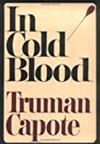
Why People Believe Weird Things: Pseudoscience, Superstition, and Other Confusions of Our Time
4 journalers for this copy...
I've had this on my shelf for years, and only just now got around to actually reading it.
I think, perhaps, that this book was not quite what I thought it was going to be. What I wanted - and this is no fault of the author's - was a book debunking specific "weird things". While I got a decent amount of that in the (fascinating) chapter on Holocaust deniers, by and large it was more about the psychological and emotional reasons people believe things that don't make any sense. Which is fine, as far as that goes, but it seemed to keep returning to the same few theories each time. I guess you could say he was making his case with additional evidence, but I got a sort of "okay, I got it, move on" feeling about the whole thing. In short, it's an interesting read but probably something you'd more enjoy reading a chapter here and there rather than straight through,
Registered in Centreville, Virginia, USA.
I think, perhaps, that this book was not quite what I thought it was going to be. What I wanted - and this is no fault of the author's - was a book debunking specific "weird things". While I got a decent amount of that in the (fascinating) chapter on Holocaust deniers, by and large it was more about the psychological and emotional reasons people believe things that don't make any sense. Which is fine, as far as that goes, but it seemed to keep returning to the same few theories each time. I guess you could say he was making his case with additional evidence, but I got a sort of "okay, I got it, move on" feeling about the whole thing. In short, it's an interesting read but probably something you'd more enjoy reading a chapter here and there rather than straight through,
Registered in Centreville, Virginia, USA.
As someone who generally finds weird things *very* hard to believe, I'm often confused about why other people believe them so strongly. Will this answer my questions? We'll see...
People believe all manner of weird things, from literal interpretations of the bible, to abductions by aliens, to the mystical powers of pyramids, and beyond. None of these beliefs stands up to scientific analysis, in that there is either no verifiable physical evidence to support the claims, or the claims are simply not falsifiable by experiment (or both). Yet, in spite of this lack of credible grounding for such beliefs, adherents continue to hold on to their faith in the validity of their claims.
This book is an effort to examine why people should hold so strongly to such beliefs, in spite of any rational, science based evidence to support them. It also explores a number of such belief systems, showing the tactics used by believers in attempting to convince others of the validity of their beliefs. It is not, as the author takes great pains to point out, an attack on people who hold such beliefs, but rather an effort to hold such beliefs up to rational examination to see what (if any) merits such beliefs might have.
In the end, it seems that evolution has programmed our brains to be susceptible to such beliefs. It appears that this susceptibility is a side effect of our neural development that allowed us to survive. In particular, we are particularly adept at identifying patterns, so much so that we often find patterns where none exist, giving rise to any number of weird beliefs. This robust pattern detection ability is coupled to a strong tendency towards confirmation bias, where we readily accept any evidence that supports our beliefs, while ignoring, discounting or rationalizing any contrary evidence. This innate confirmation bias is universal, and is the reason that scientific inquiry requires independent verification of results from repeated experiments before results can be considered conclusive. On top of these, there are many other factors that cause people to believe weird things, even in the face of strong contrary evidence.
For anyone that wants understand how to use skepticism to properly evaluate various claims, this is a useful book for understanding how to evaluate so-called “weird” claims and for understanding the ways in which our own brains can fool us into believing things that simply are not true.
This book is an effort to examine why people should hold so strongly to such beliefs, in spite of any rational, science based evidence to support them. It also explores a number of such belief systems, showing the tactics used by believers in attempting to convince others of the validity of their beliefs. It is not, as the author takes great pains to point out, an attack on people who hold such beliefs, but rather an effort to hold such beliefs up to rational examination to see what (if any) merits such beliefs might have.
In the end, it seems that evolution has programmed our brains to be susceptible to such beliefs. It appears that this susceptibility is a side effect of our neural development that allowed us to survive. In particular, we are particularly adept at identifying patterns, so much so that we often find patterns where none exist, giving rise to any number of weird beliefs. This robust pattern detection ability is coupled to a strong tendency towards confirmation bias, where we readily accept any evidence that supports our beliefs, while ignoring, discounting or rationalizing any contrary evidence. This innate confirmation bias is universal, and is the reason that scientific inquiry requires independent verification of results from repeated experiments before results can be considered conclusive. On top of these, there are many other factors that cause people to believe weird things, even in the face of strong contrary evidence.
For anyone that wants understand how to use skepticism to properly evaluate various claims, this is a useful book for understanding how to evaluate so-called “weird” claims and for understanding the ways in which our own brains can fool us into believing things that simply are not true.
Journal Entry 4 by  Knox9thFloor
Knox9thFloor at US Patent & Trademark Office - Knox Building in Alexandria, Virginia USA on Tuesday, August 12, 2014
at US Patent & Trademark Office - Knox Building in Alexandria, Virginia USA on Tuesday, August 12, 2014
 Knox9thFloor
Knox9thFloor at US Patent & Trademark Office - Knox Building in Alexandria, Virginia USA on Tuesday, August 12, 2014
at US Patent & Trademark Office - Knox Building in Alexandria, Virginia USA on Tuesday, August 12, 2014
Released 9 yrs ago (8/12/2014 UTC) at US Patent & Trademark Office - Knox Building in Alexandria, Virginia USA
WILD RELEASE NOTES:
This book is available on the Book Exchange shelf in the pantry in room 9C68 of the Knox Building (USPTO employees and authorized visitors only - this area is not open to the general public).
This book has been absent from the book exchange shelf for a while, but reappeared this morning and is ready for another reader.
This book is being pulled from the book exchange shelf to make room for some new arrivals. It will be released elsewhere.
This will be available at the BC-in-DC meeting.
Journal Entry 8 by  6of8
6of8 at -- Mail or by hand-rings, RABCK, meetings, etc, Virginia USA on Monday, August 20, 2018
at -- Mail or by hand-rings, RABCK, meetings, etc, Virginia USA on Monday, August 20, 2018
 6of8
6of8 at -- Mail or by hand-rings, RABCK, meetings, etc, Virginia USA on Monday, August 20, 2018
at -- Mail or by hand-rings, RABCK, meetings, etc, Virginia USA on Monday, August 20, 2018
I have taken a solemn oath not to bring home any of ResQgeek's books because I have a huge backlog of them. I could get all lawyerly and cite the Melydia registered it loophole. Or I could justify it on the grounds of research into human psychology to go along with my studies. Or I can just accept a lapse in willpower and move on. However it goes, the book came home with me.
Journal Entry 9 by  6of8
6of8 at -- Mail or by hand-rings, RABCK, meetings, etc, Virginia USA on Saturday, March 23, 2019
at -- Mail or by hand-rings, RABCK, meetings, etc, Virginia USA on Saturday, March 23, 2019
 6of8
6of8 at -- Mail or by hand-rings, RABCK, meetings, etc, Virginia USA on Saturday, March 23, 2019
at -- Mail or by hand-rings, RABCK, meetings, etc, Virginia USA on Saturday, March 23, 2019
This book got a little challenging about halfway through for someone like me who struggles with statistics and such. There were a lot of terms and logical sequences that I am not used to as an English major. I could grasp the point but not the nuances.
Still, I learned quite a bit about how people go about believing things that the vast majority of scientific evidence says are false. In a world where those who cry "fake news" are in the business of expounding alternative facts and fake truths, this is valuable information. I even utilized this book in an assignment for my Research Methods class (also a struggle for me).
One point that I found enlightening was the list of characteristics of political extremists and fringe groups, because these are so evident in public discourse today
1 absolute certainty they have the truth
2 the country/world is controlled by a conspiratorial group
3 open hatred of opponents who are part of or sympathetic to the conspiracy
4 little faith in the democratic process which results in rejection of compromise
5 willingness to deny civil liberties to those deemed enemies
6 consistent use of irresponsible accusations and character assassination
Still, I learned quite a bit about how people go about believing things that the vast majority of scientific evidence says are false. In a world where those who cry "fake news" are in the business of expounding alternative facts and fake truths, this is valuable information. I even utilized this book in an assignment for my Research Methods class (also a struggle for me).
One point that I found enlightening was the list of characteristics of political extremists and fringe groups, because these are so evident in public discourse today
1 absolute certainty they have the truth
2 the country/world is controlled by a conspiratorial group
3 open hatred of opponents who are part of or sympathetic to the conspiracy
4 little faith in the democratic process which results in rejection of compromise
5 willingness to deny civil liberties to those deemed enemies
6 consistent use of irresponsible accusations and character assassination
Journal Entry 10 by  6of8
6of8 at Day Of The Book (Street Festival) On Howard Avenue in Kensington, Maryland USA on Monday, April 1, 2019
at Day Of The Book (Street Festival) On Howard Avenue in Kensington, Maryland USA on Monday, April 1, 2019
 6of8
6of8 at Day Of The Book (Street Festival) On Howard Avenue in Kensington, Maryland USA on Monday, April 1, 2019
at Day Of The Book (Street Festival) On Howard Avenue in Kensington, Maryland USA on Monday, April 1, 2019
Released 4 yrs ago (4/28/2019 UTC) at Day Of The Book (Street Festival) On Howard Avenue in Kensington, Maryland USA
WILD RELEASE NOTES:
This book is one of many being passed along to potential readers at the Kensington Day of the Book Festival by members of BookCrossing in Washington DC (BCinDC).
Any future reader or recipient of this book is encouraged to leave a journal entry here on the BookCrossing site to let prior readers know the fate of the book. You can make an anonymous entry without joining the BookCrossing movement, but if you are interested in joining, it is a free and spam-free community where your contact information is not shared with others. Best of all, members receive private messages via e-mail from books like this one when those books are journaled, allowing for long-term relationships between books and readers.
Any future reader or recipient of this book is encouraged to leave a journal entry here on the BookCrossing site to let prior readers know the fate of the book. You can make an anonymous entry without joining the BookCrossing movement, but if you are interested in joining, it is a free and spam-free community where your contact information is not shared with others. Best of all, members receive private messages via e-mail from books like this one when those books are journaled, allowing for long-term relationships between books and readers.


 This Book is Currently in the Wild!
This Book is Currently in the Wild!











